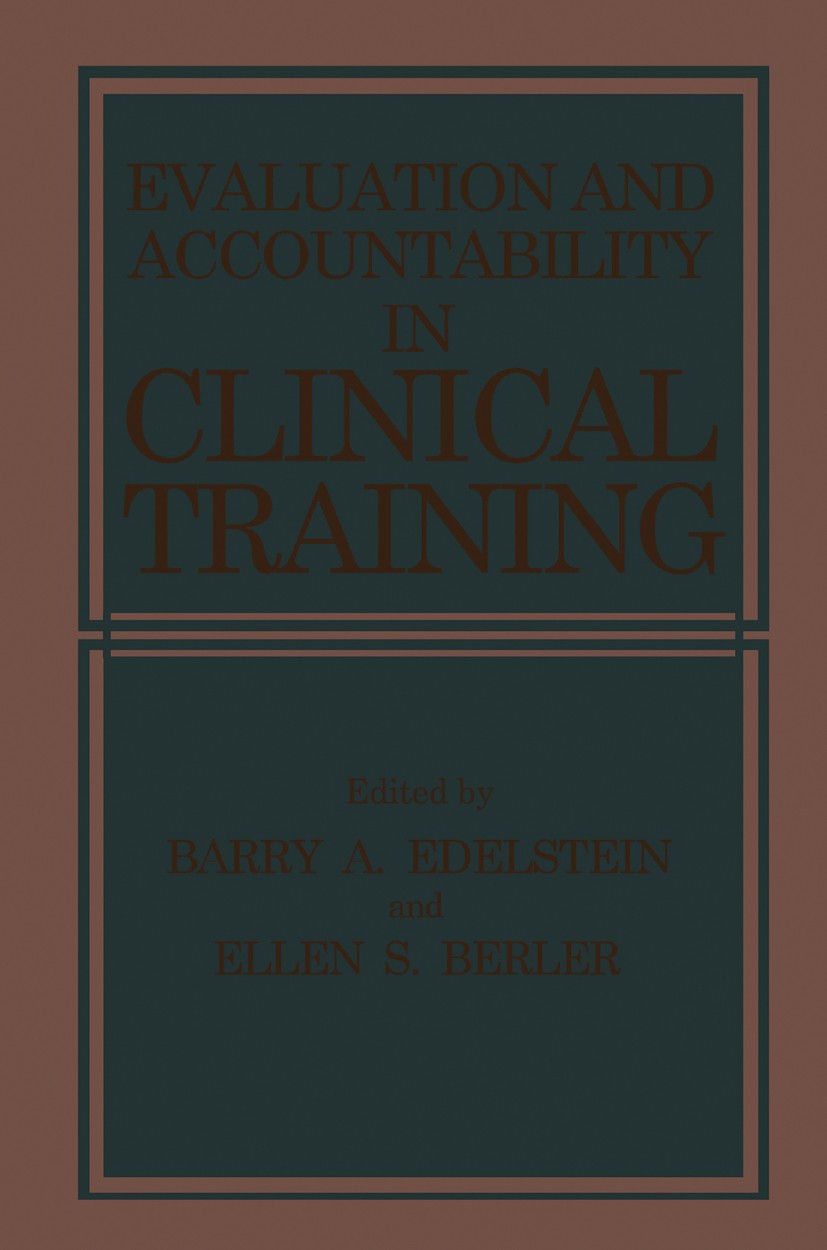| 書目名稱 | Evaluation and Accountability in Clinical Training | | 編輯 | Barry A. Edelstein,Ellen S. Berler | | 視頻video | http://file.papertrans.cn/318/317274/317274.mp4 | | 圖書封面 |  | | 描述 | Accountability in clinical training implies a strong relationship between the training outcomes touted by a training program and the performance of its graduates. The training program and its faculty must be able to ensure that students have the competencies necessary for entering the profession and can offer competent services. In addition, responsibility for the quality and value of training must be assumed by the profession. Pressure for accountability is becoming increasingly apparent as the public learns about fraud, waste, and abuse in publicly funded pro- grams (Fishman & Neigher, 1982). Federally supported clinical training programs have had to defend their training practices against threats of funding loss without the hard data needed to support their practices. Funding seems to have been forthcoming mostly because of our ability to demonstrate the need for clinical, counseling, and school psychol- ogists. Graduates seeking professional careers in such applied fields demand considerable trust from their clientele and the public-at-large when they establish themselves, offer and advertise their services, make claims on public monies, and profess to do good and no harm. Neit | | 出版日期 | Book 1987 | | 關(guān)鍵詞 | Counseling; Evaluation; Training; Validation; assessment; intervention; management; psychiatry; psychology; s | | 版次 | 1 | | doi | https://doi.org/10.1007/978-1-4684-5281-5 | | isbn_softcover | 978-1-4684-5283-9 | | isbn_ebook | 978-1-4684-5281-5 | | copyright | Plenum Press, New York 1987 |
The information of publication is updating

|
|
 |Archiver|手機(jī)版|小黑屋|
派博傳思國際
( 京公網(wǎng)安備110108008328)
GMT+8, 2025-10-22 07:11
|Archiver|手機(jī)版|小黑屋|
派博傳思國際
( 京公網(wǎng)安備110108008328)
GMT+8, 2025-10-22 07:11


